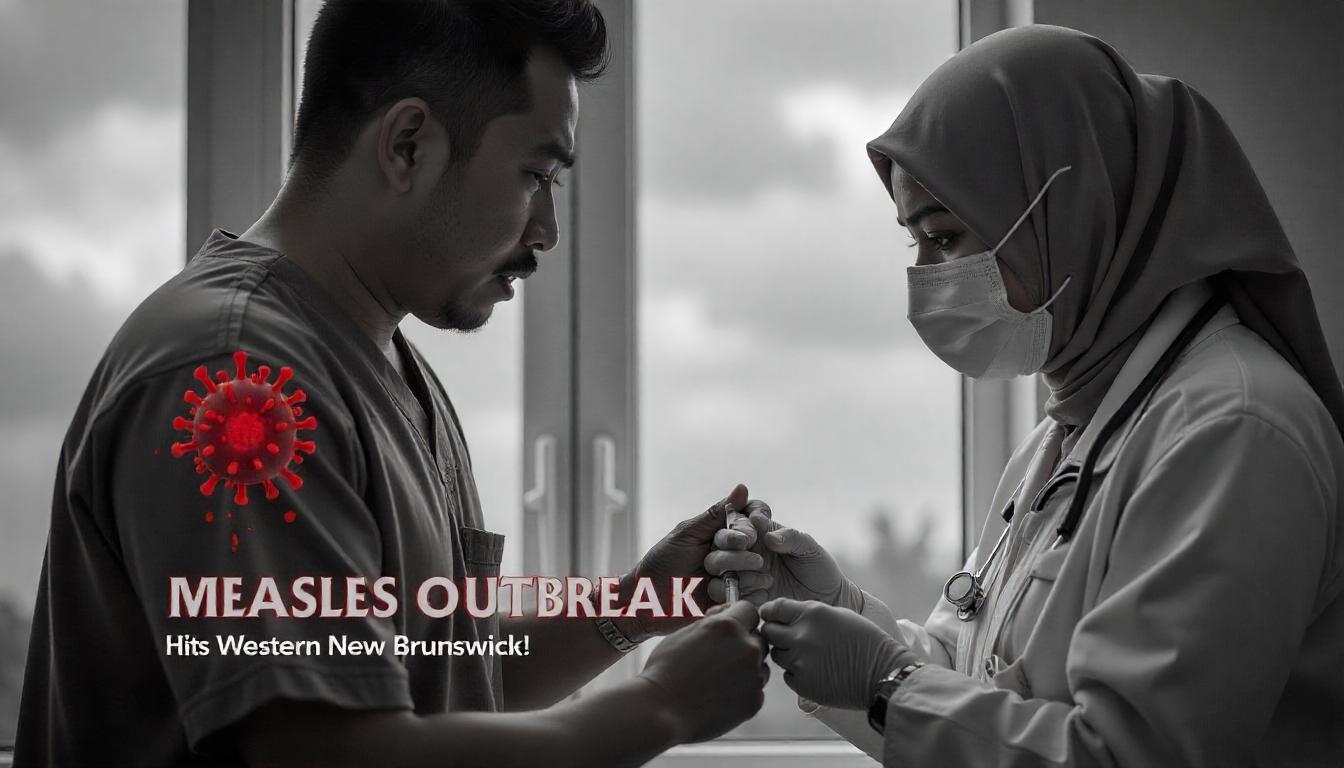Manitoba is taking extensive steps to prepare for this year’s flu season, after enduring its worst influenza outbreak in two decades last year. Health Minister Uzoma Asagwara emphasized the province’s readiness at a press conference launching this year’s annual vaccination campaign, saying the government has collaborated with health-care experts and key stakeholders across the province to ensure that systems are in place to handle the upcoming season effectively.
Both flu and COVID-19 vaccines are now available to all Manitobans aged six months and older. These vaccines can be accessed at medical clinics, Access centres, vaccination clinics, pharmacies, nursing stations, and through public health services. According to Chief Provincial Public Health Officer, Dr. Brent Roussin, certain groups remain at higher risk of severe outcomes from flu or COVID-19. These include individuals over 65, Indigenous people, residents of care homes, pregnant individuals, children aged six months to five years, and those with underlying chronic health conditions.
Additionally, this year, the province has introduced a new program offering free vaccines for respiratory syncytial virus (RSV) to people over 60 who reside in long-term care homes. RSV poses a significant health risk for older adults and those with weakened immune systems, so the province is expanding its vaccination efforts to ensure better protection for this vulnerable population.
Minister Asagwara urged Manitobans to take personal responsibility in safeguarding their communities by getting vaccinated. “Everyone has a role to play in protecting our families, friends, and neighbors,” they said. While health-care workers focus on caring for the province’s most vulnerable residents, Asagwara stressed that it is up to each individual to contribute to the overall effort by getting vaccinated against both COVID-19 and the flu. The province’s message this year is simple: “One visit, two shots,” encouraging people to get both vaccines in a single appointment.
In addition to vaccines, public health officials are urging Manitobans to follow basic preventive measures, such as staying home if they feel sick, wearing masks in crowded spaces, and practicing good hand hygiene. Dr. Roussin reminded people that respiratory viruses like the flu and COVID-19 are primarily spread through droplets from coughing, sneezing, or talking, and maintaining personal hygiene can significantly reduce transmission.
The province has also been working to bolster its healthcare capacity ahead of this year’s flu season. Since last fall, Manitoba has added 18 intensive care unit (ICU) beds, bringing the total number of ICU beds to 110 across the province. It has also expanded pediatric care by adding eight new pediatric ICU beds, for a total of 21. Additionally, the province has added 112 acute care beds, with plans to open 70 more in the near future.
Dr. Roussin explained that early indications suggest this year’s flu season may be more typical compared to last year’s surge, which saw unusually high numbers of severe cases. “We often look to the southern hemisphere for clues about what to expect,” Roussin said, noting that flu trends in other parts of the world suggest a more manageable season. However, he cautioned that flu seasons are inherently unpredictable, and vigilance is key.
Reflecting on last year’s flu outbreak, Dr. Roussin said that most of the severe cases, especially those requiring intensive care, involved unvaccinated individuals. He also pointed out that despite having a well-matched flu vaccine last year, many people did not get vaccinated, which contributed to the high number of hospitalizations. Only about 25 percent of Manitobans received the flu shot last year, and COVID-19 vaccine uptake was even lower, around 19 percent. The numbers were particularly low for children under five, a group for which flu vaccination is especially critical.
The low vaccination rates, particularly among children, remain a concern for public health officials. “We really encourage both COVID and influenza vaccines, but for young children, the flu vaccine is especially important,” Roussin said.
One of the key challenges in promoting vaccination is the spread of misinformation, Roussin noted. Vaccine misinformation, which became rampant during the COVID-19 pandemic, continues to be a threat to public health. “We want to remain the trusted source of information,” Roussin said, urging Manitobans to rely on their health-care providers for accurate guidance. He encouraged residents to trust the professionals who have supported them through many aspects of their health care and to turn to them for advice on vaccination.
In terms of COVID-19, Manitoba’s vaccination efforts are now focused on protecting against the KP.2 subvariant, which is currently the dominant strain in Canada. The province’s updated COVID vaccine specifically targets this subvariant, and officials are urging eligible residents to get the shot to ensure they are protected against the most current threat.
With these preparations, Manitoba hopes to mitigate the impacts of the flu and COVID-19 this season, protect vulnerable populations, and ensure its healthcare system remains resilient during the challenging months ahead.



Saved as a favorite, I really like your blog!
Thank you for the auspicious writeup. It in fact was a amusement account it. Look advanced to far added agreeable from you! By the way, how can we communicate?
Thank you for your kind words and thoughtful feedback! I’m glad you enjoyed the writeup. If you’d like to get in touch, feel free to reach out to me at info@updatenewstoday.com. I look forward to hearing from you!
What i do not realize is in fact how you’re now not actually a lot more smartly-appreciated than you may be now. You are very intelligent. You understand thus considerably in relation to this subject, produced me individually consider it from a lot of numerous angles. Its like women and men are not interested until it is one thing to accomplish with Girl gaga! Your personal stuffs great. All the time care for it up!
Thank you so much for your kind and encouraging words! I truly appreciate your thoughtful feedback and am glad the content resonated with you. It’s always rewarding to explore topics from different perspectives and spark interest. Your support means a lot—thank you for taking the time to share this!
Thank you for your sharing. I am worried that I lack creative ideas. It is your article that makes me full of hope. Thank you. But, I have a question, can you help me?
Thank you for your kind words! I’m glad my article could inspire you. Feel free to ask your question—I’d be happy to help!
It’s in point of fact a great and helpful piece of info. I’m happy that you simply shared this helpful info with us. Please keep us informed like this. Thank you for sharing.
Thank you! I’m glad you found it helpful. I’ll keep sharing more updates—stay tuned!
What i don’t realize is in fact how you’re no longer really a lot more smartly-appreciated than you may be now. You’re so intelligent. You understand therefore considerably in relation to this subject, made me in my view consider it from so many varied angles. Its like women and men aren’t fascinated unless it¦s something to do with Woman gaga! Your personal stuffs nice. At all times handle it up!
Thank you so much for the kind words! I’m really glad you found the insights valuable and that it sparked new perspectives for you. I appreciate your feedback, and I’ll keep working to provide thoughtful content. And hey, I agree—sometimes people get a little more excited when it’s a flashy topic like Lady Gaga, but it’s great that you’re enjoying the deeper angles too. Thanks for the encouragement!
Your point of view caught my eye and was very interesting. Thanks. I have a question for you.
Thank you! I’m glad you found it interesting. Feel free to ask your question—I’ll be happy to help!
I don’t think the title of your article matches the content lol. Just kidding, mainly because I had some doubts after reading the article.
Haha, I see what you mean! 😄 I appreciate you reading the article. Let me know what doubts you had—I’d love to clarify!
Your article helped me a lot, is there any more related content? Thanks!
I’m glad you found the article helpful! Yes, we have more related content on similar topics. You can browse through our latest posts. Let me know if you’re looking for something specific! 😊